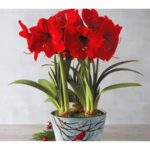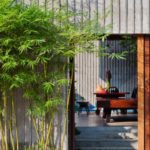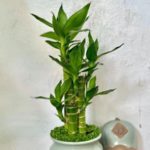The Green-Needled Bamboo, or Phyllostachy Aurea, is an elegant and robust plant with a delicate beauty, making it a popular choice for ornamental gardens. Let’s explore the fascinating world of this bamboo species and discover its unique characteristics, cultural significance, and cultivation techniques.
1 What is the Green-Needled Bamboo?
Origin and Significance of the Green-Needled Bamboo
The Green-Needled Bamboo, scientifically known as Phyllostachy Aurea, belongs to the Poaceae family. It goes by various names, including cây hóp, hóp sào, trúc bạch, trước, trẫy, and trúc câu cá. This bamboo species originates from Southeast Asian countries such as China, Nepal, Bhutan, Assam, Sri Lanka, Taiwan, and Vietnam.
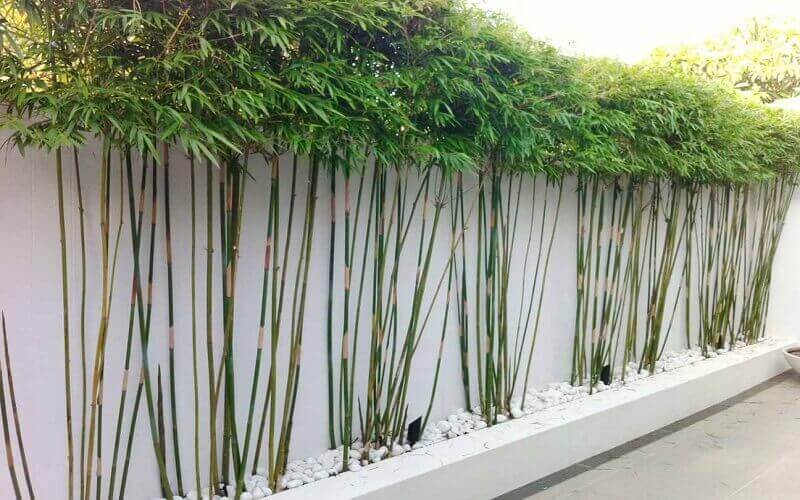 Green-Needled Bamboo, Phyllostachy Aurea, belongs to the Poaceae family
Green-Needled Bamboo, Phyllostachy Aurea, belongs to the Poaceae family
Characteristics and Classification of the Green-Needled Bamboo
The Green-Needled Bamboo stands tall with a straight, cylindrical trunk marked by distinct nodes. It grows in clumps, devoid of thorns, which sets it apart from other bamboo species. Its youthful stalks boast a light green hue, gradually deepening as the plant matures. The average height ranges from 2 to 3 meters.
The leaves of the Green-Needled Bamboo are small, soft, and have short stems. One distinctive feature is its robust root system, which penetrates deep into the soil, enabling the plant to thrive even in dry and windy conditions.
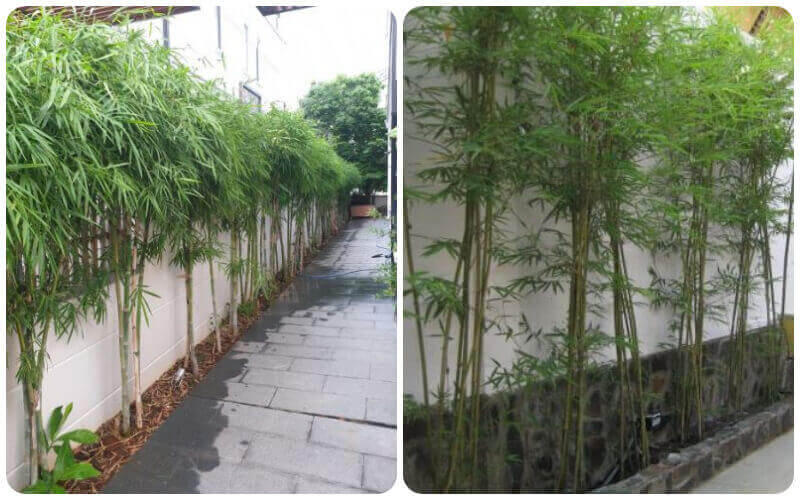 Small, soft leaves of the Green-Needled Bamboo
Small, soft leaves of the Green-Needled Bamboo
The Green-Needled Bamboo comes in two varieties: the Green-Needled Bamboo and the Golden Green-Needled Bamboo. The latter is distinguished by its bright yellow internodes and is often crafted into fishing rods and decorative items. Meanwhile, the Green-Needled Bamboo is prized for its aesthetic appeal in gardens and outdoor spaces.
2 Benefits of the Green-Needled Bamboo
The Green-Needled Bamboo is admired for its lush, vibrant greenery, offering a refreshing sight to behold. It is commonly planted as a living fence, along pathways, and in courtyards to create a serene and purifying atmosphere, free from dust and pollution.
Additionally, the Green-Needled Bamboo serves a functional purpose in crafting. Its slender and flexible stalks are ideal for basket weaving, and it is a favorite among anglers for making fishing rods, hence its name.
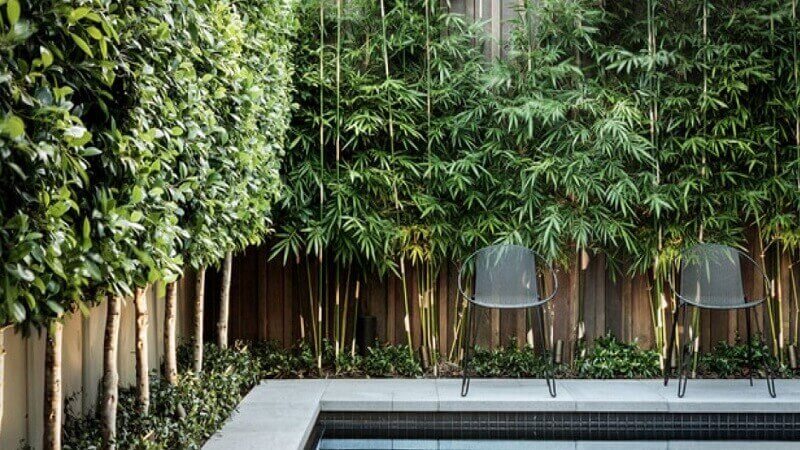 Green-Needled Bamboo symbolizes strength and resilience
Green-Needled Bamboo symbolizes strength and resilience
Symbolically, the Green-Needled Bamboo embodies the ideals of strength, resilience, integrity, and courage. It is often associated with the noble qualities of a true gentleman, reflecting a balance of strength and sensitivity.
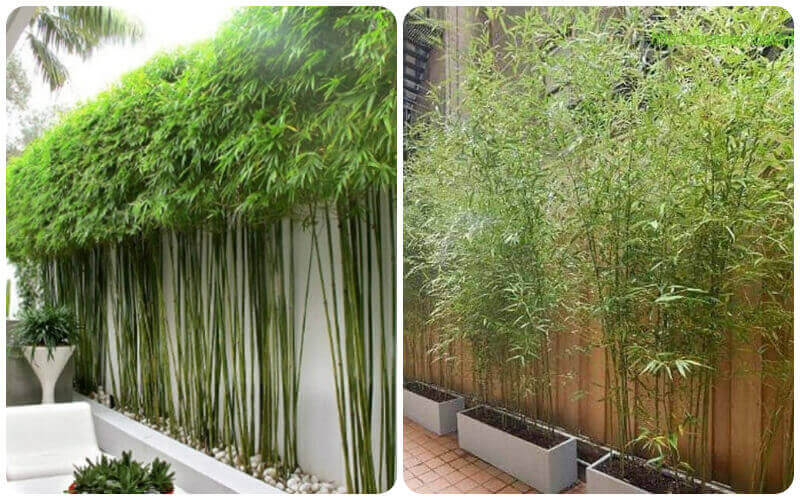 Green-Needled Bamboo brings prosperity and good fortune to those with the Wood element in Chinese astrology
Green-Needled Bamboo brings prosperity and good fortune to those with the Wood element in Chinese astrology
In the realm of Chinese astrology, the Green-Needled Bamboo holds significance for individuals with the Wood element in their birth chart, particularly those born in the years of the Rooster or Rat. It is believed to attract positive energy and prosperity into their lives.
3 Cultivation and Care of the Green-Needled Bamboo
Planting the Green-Needled Bamboo at Home
To ensure the healthy growth of the Green-Needled Bamboo, it is essential to provide ample sunlight as it thrives in sunny conditions. For optimal soil composition, mix in coco coir, compost, and manure with loamy soil.
When digging a hole for planting, make it approximately 20cm larger than the root ball of the sapling. Whether planting in the ground or in a pot, ensure there is efficient drainage to prevent waterlogging. Select a robust sapling, free from pests and diseases, and follow these steps for planting:
Caring for the Green-Needled Bamboo
While the Green-Needled Bamboo is relatively low-maintenance, there are a few key considerations for optimal growth:
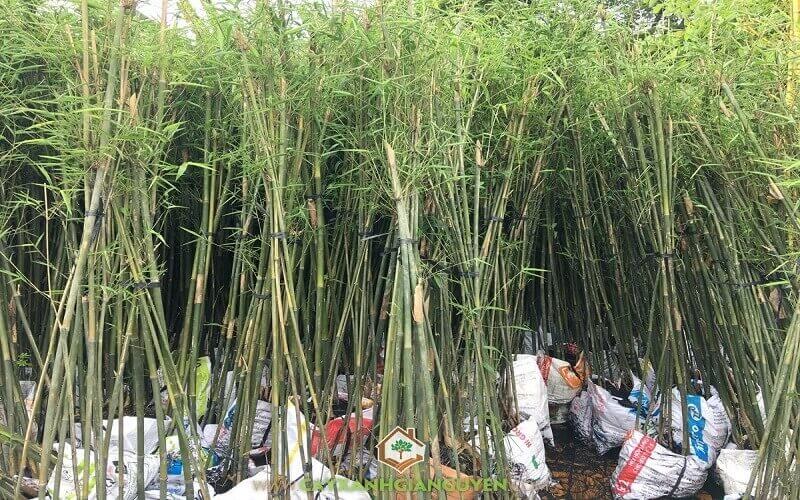 Fertilize the Green-Needled Bamboo every 1-2 months for robust growth
Fertilize the Green-Needled Bamboo every 1-2 months for robust growth
- Fertilization: To promote lush growth, fertilize the Green-Needled Bamboo every 1-2 months with organic matter and earthworm castings. For newly planted bamboo, increase the frequency to once every 2-3 weeks.
- Light: This bamboo variety thrives in sunny conditions. If grown in pots, ensure they receive direct sunlight for 1-2 weeks at a time, with each session lasting 1-2 days, followed by a period of shade to prevent overheating.
- Watering: Avoid overwatering the Green-Needled Bamboo. Water only when the soil feels dry, and take care not to saturate the roots, as this can lead to root rot.
- Pest Control: Common issues include mealybugs, leaf scorch, and leaf dryness. If leaf scorch occurs, trim away the affected areas, provide adequate water and nutrients, and for mealybugs, use a specialized insecticide to eradicate the pests.
Important Considerations for Cultivation and Care
While the Green-Needled Bamboo prefers moist soil, it cannot tolerate waterlogging. Therefore, ensure proper drainage and maintain a balanced watering routine.
For potted bamboo kept in shaded areas, provide regular sunlight exposure by placing it outdoors for 2-3 days every 1-2 weeks to promote healthy growth.
Prune the bamboo periodically to encourage a strong, focused growth pattern and reduce the risk of pest infestations. Common issues include mealybugs, leaf scorch, and leaf dryness.
Address any pest or disease issues promptly with appropriate measures, such as using insecticides, trimming affected areas, and providing adequate water and nutrients.
4 Captivating Images of the Green-Needled Bamboo
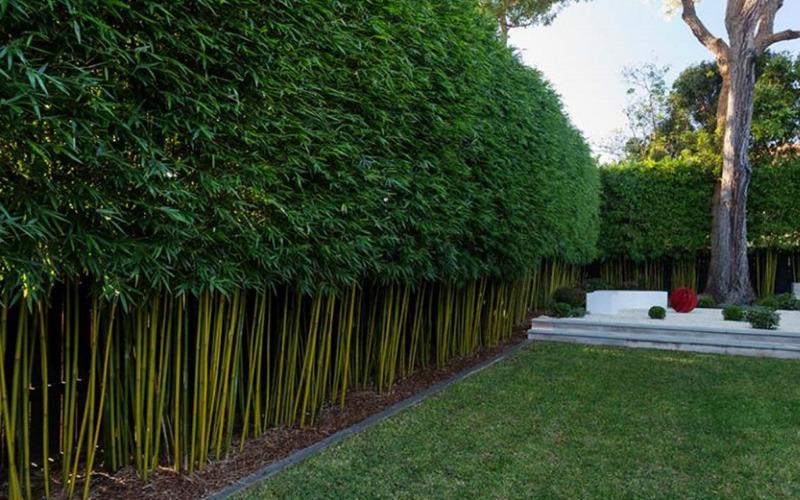 Green-Needled Bamboo creates a vibrant living fence
Green-Needled Bamboo creates a vibrant living fence
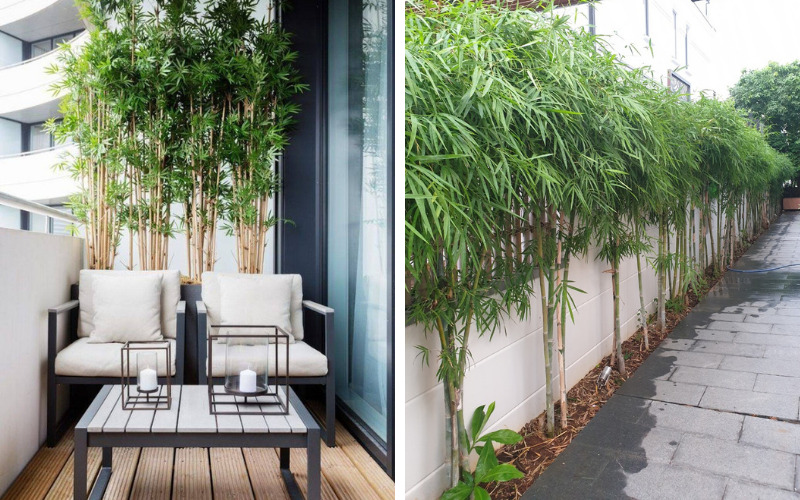 Green-Needled Bamboo adds a touch of elegance to indoor and outdoor spaces
Green-Needled Bamboo adds a touch of elegance to indoor and outdoor spaces
The Lucky Bamboo Arrangement: Unlocking Wealth and Fortune
The lucky bamboo plant, Dracaena sanderiana, is an iconic symbol of prosperity and good fortune in many cultures. With its graceful stalks and lush foliage, this plant has an almost magical appeal. In this guide, we will unravel the secrets behind the power of lucky bamboo and reveal how you can harness its energy to attract wealth and blessings into your life. Discover the ancient traditions and modern techniques for displaying and caring for this remarkable plant, and learn how to create a harmonious and prosperous environment in your home or office. Get ready to unlock a world of abundance and positive vibes with the lucky bamboo!


























